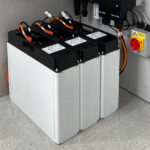Thinking of purchasing a solar battery in your city? Here’s what local buyers need to know before making a decision that powers their homes for years.
The Growing Demand for Solar Backup
Across Pakistan, solar power has transitioned from being a luxury to a necessity. With load shedding, rising grid electricity costs, and environmental awareness on the rise, more homeowners and small businesses are investing in solar systems. But as the demand grows, so does the confusion—especially when it comes to energy storage.
If you’re planning to shop locally for a solar battery, understanding the solar battery price in Pakistan is a critical first step. Prices fluctuate based on quality, capacity, brand, and market availability, making it hard for the average buyer to know whether they’re getting a good deal or overpaying for low-grade equipment.
Local vs. Imported Batteries: What’s the Difference?
One of the first choices you’ll face is between locally manufactured and imported batteries. Each comes with its pros and cons:
Locally Manufactured:
- Pros: Readily available, easy warranty claims, generally lower prices.
- Cons: Shorter lifespan, inconsistent quality, limited advanced technology options.
Imported:
- Pros: Longer lifespan, higher energy efficiency, better performance in extreme temperatures.
- Cons: Higher upfront cost, warranty might be difficult to claim, availability may vary by region.
In local markets like Lahore’s Hall Road or Karachi’s Saddar area, both options are available—but the right choice depends on your budget, usage, and long-term expectations.
Evaluating the Battery Type: More Than Just Price
Not all solar batteries are built the same. Understanding the core types can help you make a better choice:
1. Lead-Acid Batteries
- Most affordable option
- Shorter cycle life (roughly 2–3 years)
- Require regular maintenance and proper ventilation
2. AGM and Gel Batteries
- Maintenance-free alternatives to traditional lead-acid
- Medium lifespan and cost
- Suitable for moderate usage and small to mid-size solar setups
3. Lithium-Ion Batteries
- Highest efficiency and cycle life (up to 10+ years)
- Fast charging and compact design
- Higher initial cost but lower long-term maintenance
While lithium batteries are more expensive, many buyers are leaning toward them for their long-term reliability, especially in urban centers where consistent backup is crucial for uninterrupted work or schooling.
What Affects Local Pricing?
In a typical local shop or solar supplier’s showroom, prices vary based on a mix of:
- Battery capacity (measured in Ah or kWh): Higher storage means higher cost.
- Brand reputation: Recognized names may command a premium.
- Technology and type: As discussed, lithium will cost more than lead-acid.
- Warranty and after-sales service: Products with extended warranties usually cost more.
- Region-specific demand: In cities with more power cuts (like rural Punjab or interior Sindh), prices can spike seasonally.
It’s also important to note that inflation and exchange rate fluctuations affect imported battery pricing, meaning a quote today might change within weeks.
Middle-Class Buyer Case Study: Faisalabad Family Goes Solar
A middle-income family in Faisalabad recently installed a hybrid solar system for their 3-bedroom home. Their main concern was night-time power backup, especially during summer load shedding. After evaluating various options, they opted for two 200Ah deep-cycle batteries from a reputable local brand.
Here’s what they learned:
- Buying locally allowed them to inspect the batteries in person before installation.
- They received better installation support from local vendors who also offered free servicing for 12 months.
- Their batteries had a 2-year warranty, with easy claims available through a shop just 10 minutes from their home.
- Although they initially considered lithium, they stuck with lead-acid due to cost, with plans to upgrade in the future.
This example reflects what most local buyers experience—a trade-off between budget and long-term benefits.
Ensuring the Right Battery for Solar Panel Efficiency
Many first-time buyers forget that solar batteries must be matched carefully to the rest of the system. Choosing the right battery for solar panel efficiency is more than just picking one off the shelf—it’s about proper compatibility.
If your battery’s voltage or storage capacity doesn’t align with your solar panel’s output, you could face:
- Inefficient charging (especially on cloudy days)
- Reduced battery lifespan
- Frequent discharging leading to backup failures
Smart vendors or installers will help size your battery system to your panel output, inverter rating, and daily energy use. Some even offer bundled packages where each component is pre-matched, taking the guesswork out of the process.
Tips When Buying a Solar Battery Locally
If you’re shopping for a battery in your area, here are some practical tips that can save you time, money, and regret:
1. Visit Multiple Shops
Get quotes from at least 2–3 vendors. Prices and recommendations can vary widely.
2. Ask for Product Specifications
Don’t settle for vague answers. Ask about storage capacity, cycle life, discharge depth, and warranty.
3. Inspect Before You Buy
Check for manufacturing dates, any physical damage, or signs of tampering.
4. Request a Load Analysis
Reputable vendors often offer a free or low-cost home survey to assess your exact energy needs.
5. Verify Warranty Support
Make sure the warranty is honored locally—not just a sticker on the box. Get it in writing.
What to Watch Out For
Local markets can be a mixed bag, especially for first-time buyers. Keep an eye out for:
- Counterfeit products: Some shops repackage old batteries or copy branding.
- Used or refurbished units: These may be passed off as new unless you’re careful.
- Over-promising salespeople: Always verify claims of “10-year life” or “zero maintenance” with research.
If a deal looks too good to be true, it probably is.
Long-Term Considerations
A solar battery isn’t a one-time purchase. Think about:
- Replacement cycle: Lead-acid batteries may need replacing every 3–4 years; lithium might last up to a decade.
- Maintenance: Some types require regular water top-ups and ventilation checks.
- Disposal: Lead-acid batteries must be properly disposed of or recycled to avoid environmental damage.
When buying locally, check whether the vendor has a battery buy-back or recycling program—it’s a small but important step in responsible solar ownership.
Final Thoughts: Local Can Be Smart—If You Know What to Expect
Buying a solar battery from a local vendor offers several benefits: personalized service, immediate availability, and easier warranty claims. But it also requires due diligence. By understanding your energy needs, researching the different types of batteries, and knowing how to verify product quality, you can make a purchase that serves your home for years—without draining your wallet or peace of mind.
📞 Need Help Choosing the Right Solar Battery?
If you want expert advice before buying your solar battery locally, contact our team for personalized recommendations and load assessment. Call us today at 📱 +92 300 5006356—we’ll help you make an informed choice that suits your needs and budget.
- What to Expect When Buying a Solar Battery Locally – Pricing, Quality, and Local Support Insights
- Thinking of purchasing a solar battery in your city? Here’s what local buyers need to know before making a decision that powers their homes for years.
- solar battery price in pakistan
Related posts:
 Discover the Best Fence Installation Services in Omaha with Huskins Services LLC
Discover the Best Fence Installation Services in Omaha with Huskins Services LLC
 Summer Solstice Party Ideas & Activities for a Magical Celebration | BizzCrave
Summer Solstice Party Ideas & Activities for a Magical Celebration | BizzCrave
 At the Time of Booking: What to Keep in Mind During a Medical Emergency
At the Time of Booking: What to Keep in Mind During a Medical Emergency
 Streamline Your Business with an Automated Employee Payroll System
Streamline Your Business with an Automated Employee Payroll System
 Nutrition and Wellness Programs in Assisted Living Communities in Oakville
Nutrition and Wellness Programs in Assisted Living Communities in Oakville
 What Should You Know Before Choosing a Book Printing Company?
What Should You Know Before Choosing a Book Printing Company?
 Discovering the Right Office Furniture for Comfort and Productivity
Discovering the Right Office Furniture for Comfort and Productivity
 Thermal Imaging: Revolutionizing Detection Through Infrared Technology
Thermal Imaging: Revolutionizing Detection Through Infrared Technology







